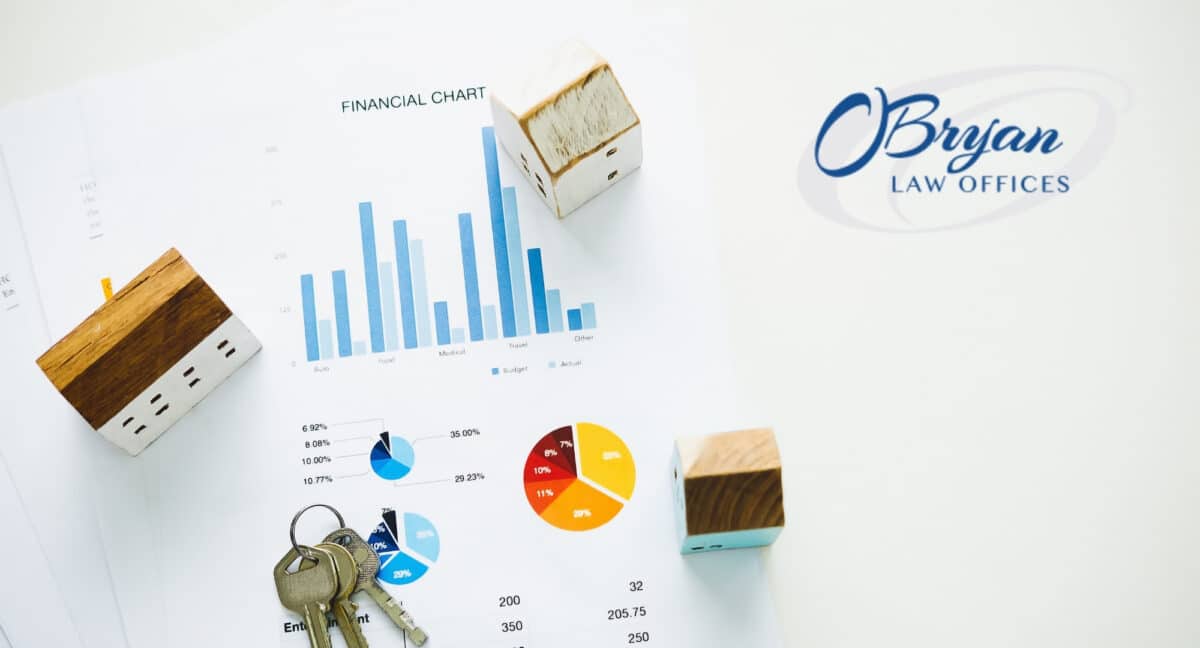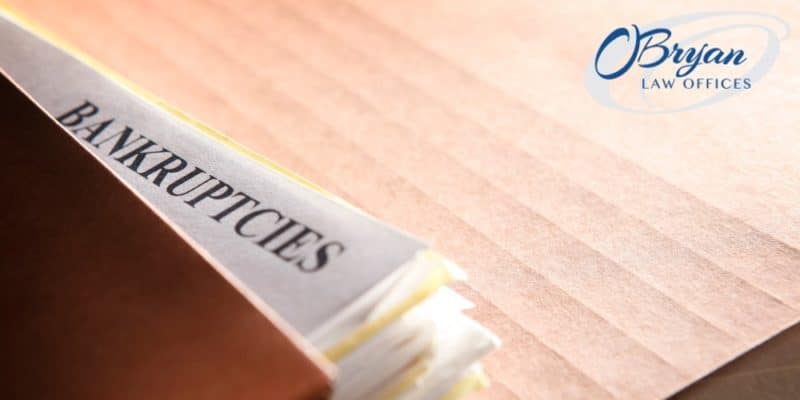Types of Bankruptcy in Kentucky

What Type of Bankruptcy Do I Need?

Between July 1, 2019 and June 30, 2020, over half a million people filed for different types of bankruptcy according to United States Courts. Filing for bankruptcy is a tough decision, but it results in thousands of Americans being debt-free every year. Because of the unique legal protections it offers, we are staunch advocates for the power of bankruptcy to get consumers out of tough financial situations. If you’re considering bankruptcy, O’Bryan Law Offices wants to help. Call us today at 502-339-0222 for a free consultation.
What Is Bankruptcy?
Bankruptcy is a legal process where people or businesses that are unable to repay their creditors seek relief from their debts. The person or business looking to pay off debt can file a petition with the bankruptcy court to begin the process. While many people view bankruptcy as a negative choice with a severe stigma around it, our attorneys are working hard to change that narrative.
The Bankruptcy Code and other federal bankruptcy laws exist so that citizens who are struggling with debt can find a way out. Bankruptcy protection is a powerful tool that can shield you from creditor harassment, foreclosure, and many other negatives. Each chapter of the Bankruptcy Code awards different protections for consumers, businesses, municipalities, and even farmers. Continue reading to learn more about the benefits of the different types of bankruptcy filings.
What Are the Different Types of Bankruptcy?
There are many different types of bankruptcy available depending on who files the petition. Generally, the most common difference between the types of bankruptcy is people vs. businesses or personal vs. corporate bankruptcy. In other words, are you a consumer filing a bankruptcy petition or are you a business?
According to the United States Bankruptcy Code, the following are the different types of bankruptcy filings.
- Chapter 7 Bankruptcy: Liquidation
- Chapter 9 Bankruptcy: Municipal Bankruptcy
- Chapter 11 Bankruptcy: Reorganization
- Chapter 12 Bankruptcy: Bankruptcy for Family Farmers and Family Fishermen
- Chapter 13 Bankruptcy: Debt Adjustment for an Individual
- Chapter 15 Bankruptcy: Ancillary and Cross-Border Cases (those involving debtors in more than one country)
Types of Personal Bankruptcy
If a person or a married couple files for bankruptcy, it’s considered personal bankruptcy. Chapter 7 and Chapter 13 are the most common types of personal bankruptcy. Occasionally, personal bankruptcy is under Chapter 11, but this is uncommon. At O’Bryan Law Offices, we primarily handle Chapter 7 and Chapter 13 cases.
The Federal Trade Commission (FTC) states that a personal bankruptcy case can help with certain debts, such as personal loans, medical bills, unsecured debts, and more. However, bankruptcy laws prevent debtors from discharging child support arrears, alimony payments, tax debts, and certain student loan obligations.
Types of Business Bankruptcy
Meanwhile, business bankruptcy is just like it sounds: when a business files for bankruptcy. Bankruptcy proceedings can also be highly beneficial for businesses. Most companies or corporations will file Chapter 7 bankruptcy if they file at all.
Under Chapter 7, business operations must cease, and the company will go out of business. Then, the company’s assets are sold (liquidated) by a court-appointed trustee, who then uses the profits to pay off the company’s debts, as long as those debts qualify for bankruptcy.
Under Chapter 11, which is less common, the company does not close its doors. Instead, the company reorganizes its finances and takes steps to return to good financial standing. Many bankruptcy basics resources refer to this as debt restructuring.
Chapter 7 Bankruptcy
As mentioned previously, Chapter 7 is one of the most common types of bankruptcies that can provide people with a fresh start from debt. To be eligible, you have to prove to the bankruptcy court that your income isn’t enough to pay even a small portion of your debt through a means test. In order to file Chapter 7 bankruptcy, you must pass the means test. This test measures whether you make enough money to repay your creditors.
How Does Chapter 7 Bankruptcy Work?
Chapter 7 is also called “liquidation bankruptcy” because people are required to sell assets in order to pay their creditors for a debt-free life. A bankruptcy trustee is in charge of the sale, also known as liquidation. The trustee can only sell non-exempt property. However, all property is protected by an exemption under state law in most Chapter 7 cases.
Additionally, most Chapter 7 cases last no more than four to six months if there is no non-exempt property. In this case, the court order that gets rid of your dischargeable debt is typically given three to four months after the filing date. Once that happens, you can start rebuilding your credit.
Chapter 13 Bankruptcy
Chapter 13 is the second most common type of personal bankruptcy. Unlike in Chapter 7, people can keep their assets while paying off debt. Chapter 13 involves a repayment plan that only pays part of the person’s debt. In order to file for this type of bankruptcy, a person’s secured and unsecured debt can’t exceed a certain amount.
You’ll also need to take the means test to see if you qualify for a Chapter 13 bankruptcy proceeding. We recommend speaking with a qualified bankruptcy attorney if you need help determining which chapter is right for your situation.
How Does Chapter 13 Bankruptcy Work?
Firstly, in a Chapter 13 repayment plan, a person creates a budget based on their monthly income and living expenses. Secondly, the person tells the bankruptcy court how much they can afford to pay on their debts every month. Lastly, the court and the bankruptcy trustee review the repayment plan.
Once approved, the bankrupt person pays their disposable income to the trustee and sends in a tax return every year. Once all the payments are complete (usually within three to five years), the person’s remaining debt disappears. This is referred to as a discharge of one’s debts.
Chapter 13 Bankruptcy for Businesses
Chapter 13 bankruptcy is for people only, not businesses. However, there’s a loophole for small businesses owned by a sole proprietor. This loophole only works because a sole proprietor isn’t a separate legal entity like LLCs and corporations. One of the most significant distinctions is that a sole proprietor is personally liable for both consumer and company debts. We recommend visiting our page dedicated to the LLC bankruptcy process.
Benefits of Chapter 13 Bankruptcy for a Sole Proprietor of a Small Business
There are many benefits of filing Chapter 13 to keep small businesses up and running, including the following.
- Keeping business assets: The biggest benefit of Chapter 13 is that you can keep all your assets while following a payment plan. But this comes at a cost. For exempt business property, the “tools of trade” exemption only protects business-related items up to a certain dollar value. This means that small business owners can choose which items to keep, but the items have to be business necessities. For nonexempt business property, business owners must include the value of nonexempt assets in their debt payment plan.
- Wiping out your business debts: As a sole proprietor, your business debts and personal debts are in the same boat. This means that small business owners must include everything they owe in Chapter 13. As a result, they will later receive a discharge of any outstanding debt once the payment plan is complete. The creditor can’t collect money from the sole proprietor or the business once the discharge is released.
- Paying off creditors: Sole proprietors can pay off priority debts, such as taxes, in their repayment plan.
- Reducing secured loans: Through Chapter 13, a sole proprietor may be able to reduce secured debt balances to the property value. By doing this, a small business will be under less of a burden because the owner will be consolidating loans into their repayment plan.
Other Bankruptcy Chapters
Other chapters of bankruptcy are outlined in the Bankruptcy Code, but our law firm does not handle cases other than Chapter 7 and Chapter 13. For educational purposes, we have included descriptions of Chapters 9, 11, 12, and 15 below.
Chapter 9 Bankruptcy
Chapter 9 allows cities, towns, counties, taxing districts, and school districts to pay off their debts. Similarly to Chapter 13 and Chapter 11, Chapter 9 allows a filer to propose a repayment plan to pay off debt.
Chapter 11 Bankruptcy
Chapter 11 bankruptcy is more common for partnerships and corporations than individuals. This is because the court filing fee is more than $1,700 and bankruptcy attorney fees can start around $15,000. While it’s an option for individuals, it’s usually only used by wealthy individuals. Chapter 11 can also benefit business owners who can’t file for Chapter 13 because they have too much debt.
If a business does file for Chapter 11, it can use it to restructure the business and its debt. Additionally, small businesses can now file a less complicated version of Chapter 11 called Subchapter V. This option became available in February 2020.
Chapter 12 Bankruptcy
Chapter 12 is a more affordable bankruptcy option for farmers and commercial fishing owners to pay off their debt without blowing all their money on Chapter 11. Chapter 12 functions similarly to Chapter 13, but with additional provisions to address the special nature of farming and fishing.
Chapter 15 Bankruptcy
Chapter 15 is a common option for people or businesses that file for bankruptcy under the laws of a foreign country, but still have assets or liabilities in the United States. The goal of Chapter 15 is to make it easier to deal with cases involving cross-border concerns. Another goal of Chapter 15 is to ensure that foreign and U.S. bankruptcy courts work together.
What Type of Bankruptcy Do I Need?
This solely depends on if you’re an individual, a spouse, a sole proprietor, a large business, a farmer or a fisherman, or a U.S. territory. If you need help paying off personal debts, Chapter 7 and Chapter 13 are the best options for you. If you’re a small business owner who needs help paying off both personal and business-related debts, definitely look into Chapter 13.
If an LLC or corporation needs debt relief, Chapter 11 is most likely the best bet. If you’re a farmer or a fisherman, look into Chapter 12. Lastly, if a city, county, or school district needs debt relief, Chapter 9 is the best option. If you need help figuring out which types of bankruptcy are best for you, contact a bankruptcy attorney today.
What Are Some Alternatives to Bankruptcy?
Bankruptcy is one of the best options that debtors have in terms of dealing with crushing debt. Whether your debt comes from medical bills, unexpected expenses, or economic downturns, bankruptcy law exists to help you navigate these issues. The main advantage that a bankruptcy proceeding has over other debt relief options is the automatic stay.
The automatic stay is the only way that debtors can receive certain legal protections. As soon as you file for bankruptcy, the automatic stay goes into effect. This stay protects you from creditor harassment and forces your creditors to cooperate with the bankruptcy court. Other debt relief options cannot guarantee that your creditors will cooperate, as they are not legally obligated to do so.
However, we understand wanting to explore your options before making such a big decision. Below, we outline other options that some people use to deal with their debts. Keep in mind that we are a bankruptcy law firm. Therefore, we do not handle or practice any of the following forms of debt relief.
Debt Settlement
Occasionally, you can work out an agreement with creditors to pay less than what you owe. Debt settlement will usually only work if you’re in default. This is because when you’re in default and file for bankruptcy, creditors may not get anything. Because of this, they may be willing to make a deal with you. It’s also important to only seek settlement for debts that you’ve stopped paying and make minimum payments on the debts that you can afford.
Depending on which chapter you file, bankruptcy may allow you to get away with paying nothing to your creditors. You may also end up working out a payment plan through Chapter 13, but bankruptcy offers the protection of the automatic stay. Debt settlement does not.
Debt Consolidation
Many debtors discover this term online in their search for debt relief solutions. Unfortunately, many debt consolidation companies make promises that they can’t keep. They claim that debt consolidation allows you to combine your debts into one easy, monthly payment. However, debtors that work with them often encounter the following two problems.
- Their creditors refuse to work with the debt consolidation company. Creditors are not legally obligated to adhere to agreements that you work out with these companies. Even if they agree initially, they can still turn around and pursue collections against you. Only the automatic stay that bankruptcy offers make your creditors legally obligated to work with you.
- In many cases, creditors end up paying more than they owed originally. Because of interest fees and other costs that debt consolidation companies charge, you could pay a good deal more when you work with them.
Many debt consolidation companies are legitimate, and they can help consumers achieve debt relief. However, some of these companies take advantage of desperate individuals. If you want a surefire way to manage your debt while also receiving legal protections, declare bankruptcy.
Sell Your Assets
If your income isn’t enough to pay off your debt, consider selling some of your most valuable assets. If you were to file for Chapter 7, you would have to sell your assets anyway. Maybe your debt isn’t yet serious enough to warrant a bankruptcy filing. In this case, you may be able to avoid it by selling certain assets.
Credit Counseling and Debt Counseling
If none of the previous options will work for you, consider contacting a nonprofit Kentucky credit counseling firm. Credit counselors can help you create a debt management plan with payments that you can afford with your income. Debt counseling and credit counseling courses are often required by bankruptcy courts. However, learning more about managing your debt and monitoring your credit report is always a good idea.
Earn Extra Income
Another debt management option is picking up a part-time or freelance job and setting aside that income for debt payments alone. A popular side job in the world of technology and social media is being a rideshare or delivery driver.
Restructure or Refinance Your Mortgage
A mortgage payment is a big bill. If you can negotiate to pay less until you survive your debt crisis, definitely do so. All you have to do is contact your lender and ask if they’re willing to create a new payment plan. Your lender may also agree to a temporary repayment plan until you’re debt free.
Lower Unnecessary Expenses
While you’re struggling with debt, it’s important to make a budget and look at how much you’re spending on unnecessary items. You can save money by canceling streaming subscriptions, avoiding eating out, canceling a gym membership, or even shutting off your cable and using only the Internet for entertainment. Take all this extra money and put it towards your debt.
Contact O’Bryan Law Offices Today
We help people get a fresh start every day. If you’re looking to resolve debt by filing for different types of bankruptcy, call O’Bryan Law Offices at 502-339-0222. We will make sure you can live a life of freedom from debt. For more information, please read our legal disclaimer. You can also read our bankruptcy E-books, written by our very own Julie O’Bryan.








